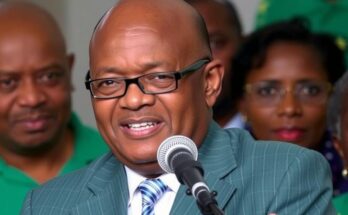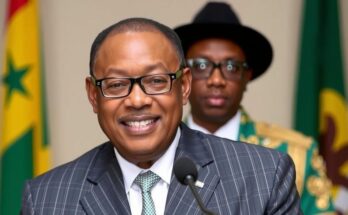Tunisia’s presidential election set for Sunday sees incumbent Kais Saied expected to win with minimal opposition. Saied’s critics are largely absent or jailed, leading to a lack of enthusiasm among voters disillusioned by economic hardship and political repression following his 2021 power consolidation. The electoral commission barred multiple candidates, contributing to skepticism about the election’s integrity and outcomes.
On Sunday, Tunisia will conduct a presidential election that appears largely unopposed as incumbent President Kais Saied is widely expected to secure re-election amid significant repression of dissenting voices. Facing off against him are only two candidates: Zouhair Maghzaoui, a former lawmaker who supported Saied’s 2021 power seizure, and Ayachi Zammel, a businessman jailed on charges of forgery. As the election commission excluded 14 potential candidates from the race, the electoral landscape reflects a disheartening trend following Saied’s consolidation of power three years ago, marking what many perceive as the end of Tunisia’s brief democratic experiment after the Arab Spring revolutions. Amidst a backdrop of economic distress and repression, the electorate is largely disillusioned, with many hesitating to participate in the vote.
The current political climate in Tunisia is characterized by the effects of Kais Saied’s significant power grab in 2021, which involved amending the constitution and repressing dissent. Tunisia, once celebrated as the nation where the Arab Spring initiated movements against authoritarianism, is now witnessing an erosion of democratic norms under Saied’s regime. Human Rights Watch has reported widespread political detentions, further suppressing legitimate opposition to the president. The election context is stark, as the political environment lacks substantial competition, resulting in voter resignation due to the perception that electoral processes are meaningless amid ongoing challenges.
Ultimately, the upcoming presidential election appears to serve more as an affirmation of Kais Saied’s power rather than a genuine democratic exercise. With significant barriers to opposition and a populace demoralized by their circumstances, the election is likely to reinforce Saied’s authority while exacerbating the socio-economic challenges Tunisia faces. Without a meaningful electoral process or viable alternatives, the future of democracy in Tunisia remains precarious under Saied’s presidency.
Original Source: www.france24.com




